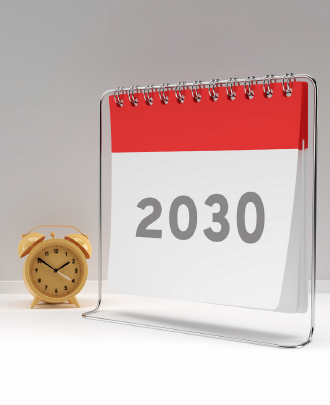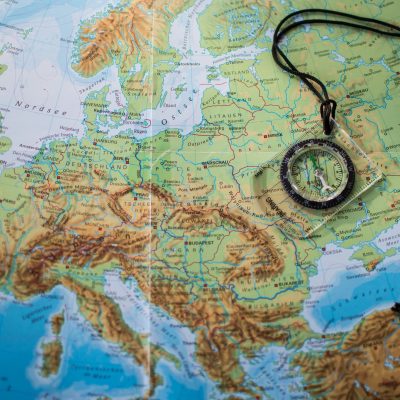[FR] Enlargement: 2030 is not the issue

There are too many candidate countries, and they are too far apart in their progress, to make a common deadline for their entry into the EU credible. Gradual accession would avoid the debate becoming crystallised around a deadline and would allow for a gradual enlargement, for which the EU must also prepare and engage public opinion.
The last European elections, in 2019, took place in a post-Brexit context, where no political party dared to advocate leaving the Union. In the next elections in 2024, on the contrary, it is EU enlargement that is likely to be a source of division. Charles Michel is right to launch a debate on this strategic issue at the level of heads of state and government at an informal summit scheduled for 6 October in Granada. However, the President of the European Council should not approach it from the narrow and politically sensitive angle of the accession date. ‘Being ready to enlarge by 2030’, as he proposed in his speech at the Bled Forum (Slovenia) on 28 August, seems inappropriate given the circumstances of the current process.
Admittedly, the candidate countries want the EU-27 to commit to a clear deadline. In a joint statement on 11 September in Skopje (North Macedonia), the leaders of the Western Balkans called on the EU to retain the objective of enlargement ‘no later than 2030’.
Setting a deadline has undeniable motivational benefits. Jacques Delors used this approach to relaunch the single market (‘Europe 92’) and then to create the single currency, setting a motivating goal and a tight schedule for achieving it. The EU-27 are currently committed to a carbon neutrality target for 2050, which has made it possible to set other legally binding intermediate deadlines. But these targets have served more as themes for deepening the EU than for enlargement.
The upcoming enlargement is no better suited to this type of time frame. A single timeframe makes sense when it applies to a limited number of countries at a similar stage of preparation – in which case it is welcome. This time, however, enlargement concerns no fewer than nine countries (six in the Balkans, Ukraine, Moldova and possibly Georgia), with widely varying degrees of progress, not to mention the controversial and virtually abandoned case of Turkey’s candidacy. Even within the Western Balkans, situations remain contrasting, as do the dates of membership applications. Montenegro’s application stands out as the most advanced in the region (33 chapters opened out of 35 to date – but very few closed). In contrast, neighbouring Bosnia and Herzegovina, a fragile country that has only recently been recognised as a candidate, is still waiting for accession negotiations to begin, while Kosovo, whose relations with Belgrade remain tense, does not yet enjoy official candidate status, nor even that of a recognised state for five EU Member States. Geographical proximity should not therefore obscure the significant disparities between these countries in terms of their status as states. Furthermore, Ukraine, due to its size and therefore its future weight within the EU, and the war with Russia, which remains fraught with uncertainty, finds itself in a situation that is incomparable to that of the other candidate countries. There can therefore be no one-size-fits-all approach or blanket entry.
Of course, the 2030 deadline put forward at this stage is only indicative. Charles Michel reiterated in Bled that the enlargement process remains based solely on merit, in other words on each candidate’s individual path to accession. The experience of previous enlargements shows that preparation times vary from country to country. But if, over the years and through constant repetition, 2030 were to become established as a politically unassailable date, effectively committing the Union, it would become equally politically untenable, or at least very delicate, to exclude certain countries that are less prepared than their neighbours by that deadline. This would erode the basis for accession on merit. The precedent of 2004, which saw the EU expand from 15 to 25 Member States in a single wave rather than two as initially envisaged, showed how difficult it is to resist such regional political pressure, even without a pre-set target date. Only the accession of Bulgaria and Romania was postponed until 2007, while other accessions that could have taken place before 2004 did not happen in order to favour a block entry.
Conversely, failing to keep the 2030 promise, if it were made, would be just as politically disastrous. For the Balkans, the prospect of accession has been open since the Thessaloniki summit in 2003 (!). The stalling of the process, until its relaunch following the war in Ukraine, has led to frustration among the public and discouragement to reform among the countries in the region. In this climate of mistrust towards European promises, an endorsement by the EU-27 of a 2030 target, given as a guide, would either be met with scepticism in the region or taken at face value and exploited by the candidates as a firm political commitment from the EU, at the risk of making accession a given by that date and turning it into a trap. a trap.
At this stage, it seems far from certain that the informal meeting of the European Council in Granada will retain the 2030 target, supported by the recent report of the Franco-German group of independent experts. This same target date had already been proposed, unsuccessfully, by the Slovenian Presidency exactly two years ago, on 6 October 2021 in Brdo, during an EU-Western Balkans summit. ‘I do not believe in a deadline that would only put us under pressure, whether the conditions are met or not,’ Angela Merkel said at the time. In her State of the Union address on 13 September, Ursula von der Leyen did not mention the 2030 deadline or any other deadline either.
However, the refusal to set a date should not be synonymous with a slackening of preparations for enlargement, which the war has made a geopolitical imperative for the EU. Charles Michel and other European leaders are rightly arguing that the EU-27 need to get down to work on this. The first step is to intensify accession negotiations with the candidate countries. The Franco-German group of experts’ idea of moving forward on sectoral chapters to be negotiated by qualified majority rather than unanimity, which is an inevitable source of deadlock, is welcome.
The EU’s preparations naturally cover its organisation and functioning more broadly. With this in mind, the President of the Commission has announced preliminary reviews of European public policies with a view to a Union of ‘30+’ members. The task is immense and will undoubtedly mark the next European term of office. A deadline for the preparatory work for enlargement to be agreed by the Twenty-Seven would make sense here.
In this respect, while 2030 offers the clarity of an easily identifiable round date, it lies beyond the next European institutional cycle, which begins with the 2024-2029 legislative term. The EU-27 should commit to reforming the EU institutions before the end of this new cycle and without requiring a new treaty, the fate of which is too uncertain given this deadline. The design and negotiation of the next post-2027 multiannual financial framework will also have to anticipate enlargement.
While the EU-27 prepare the Union for a new scale and a new chapter in its history, the next European institutional cycle should not proceed without some new accessions. The last entry, Croatia in 2013, was more than ten years ago. The two previous legislative terms (2014-2019 and 2019-2024) saw no new accessions. A third term without any new members would risk undermining the new momentum given to enlargement since the war. Warning from the outset that no new members will be admitted until the EU-27 have completed their internal institutional reforms would discourage candidate countries. On the contrary, the accession of one, two or even three new Member States during the next legislative term would demonstrate that new accessions are entirely possible and based on merit. While Croatia’s accession was unable to play this role, new accessions in the current context of renewed geostrategic interest in enlargement would lead to emulation among candidates, which would be less assured by an indicative deadline for block accession, with its share of arbitrariness. And staggering their entry would avoid making enlargement a second “Big Bang” that would unsettle public opinion in the Member States, as was the case in France in 2004.
The debate on a deadline for entry should above all give way to a debate on another approach to enlargement, namely gradual accession. The latter, which provides for the gradual political, financial and institutional entry of a candidate country into the EU in successive stages, immediately commits all parties to the process, both Member States and candidates. It takes enlargement out of the binary logic of “all or nothing”, which still governs the concept of a common deadline for block entry. Gradual accession makes it possible to move away from unnecessarily heated discussions about deadlines, such as those too often raised by Kiev in the public arena and to which 2030 seems to be the initial response.
In this regard, ruling out a single entry date should not lead heads of state and government to dismiss all public debate on enlargement and openly acknowledge its geopolitical necessity. Even gradual accession cannot be achieved on the sly. With the EU-27 due to decide in December on whether to open accession negotiations with Ukraine and Moldova, enlargement is set to be an unavoidable – and formidable – topic in the European election campaign, during which this decision will be taken. It will be inseparable from a debate on the functioning of the EU and its deepening through new forms of integration. Small, controlled steps towards accession will undoubtedly be better understood and accepted than another Big Bang in seven years’ time.




